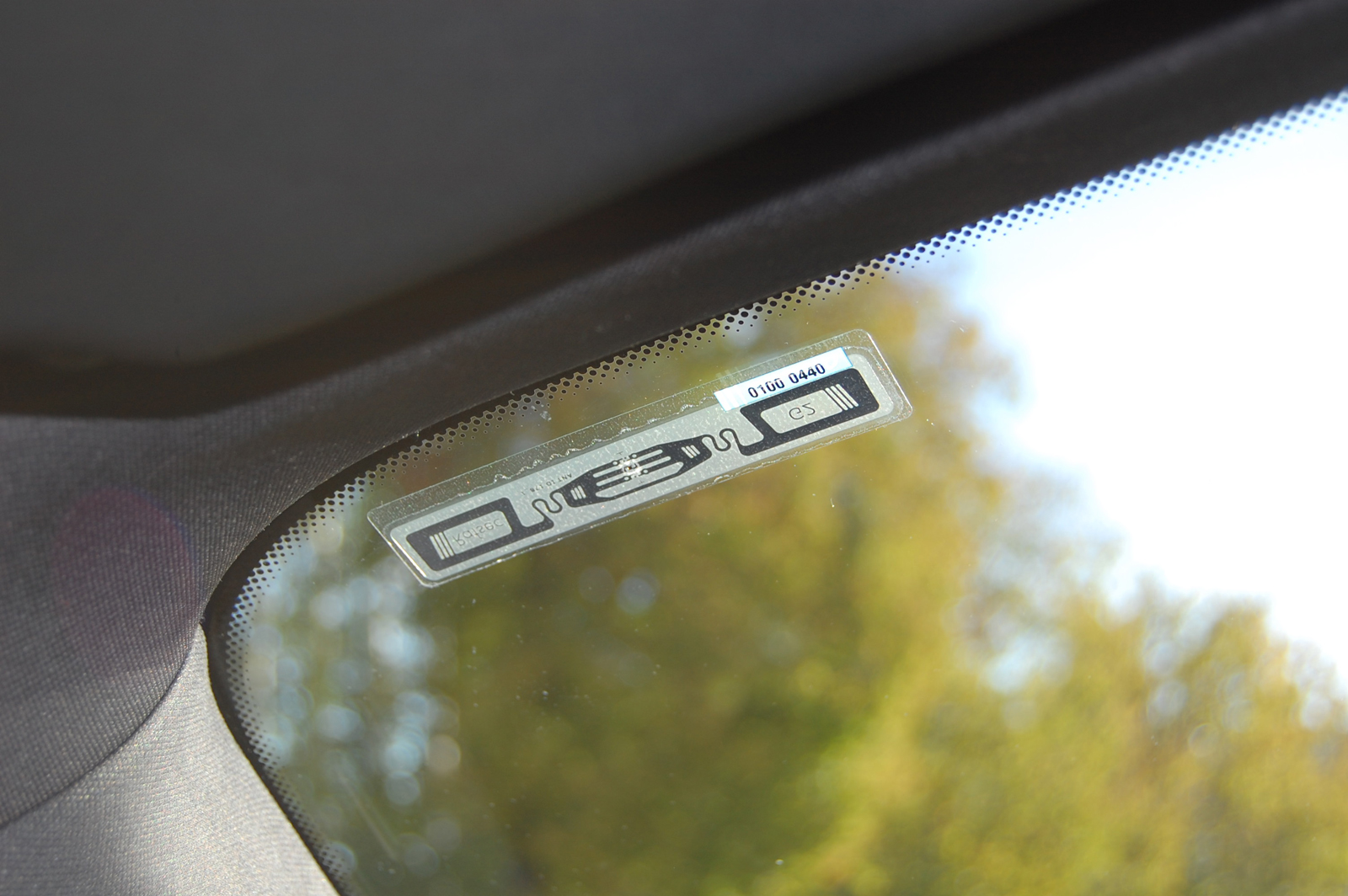Cashless parking
Vacant parking spaces in town are thin on the ground. Finding one is just as tiresome as making sure you have the right change for the parking machine. An adhesive microchip on the windshield will make things much easier by unlocking the door to cashless parking.
The car moves slowly towards the car park exit, the barriers open automatically – without the driver having to wind down the window and insert a ticket. This is thanks to a small RFID chip on the inside of the windshield. Devices on the ceiling above the car park entrance and exit read the adhesive foil transponder measuring just 1.5 x 10 centimeters and register the parking time. The fees are charged by a direct debit from an online account. VIATAG is the name of the RFID system which the research scientists at the Fraunhofer Institute for Material Flow and Logistics IML in Dortmund have developed for Munich-based company motionID technologies. “Waiting at the parking machine, searching for change, losing your ticket – all that is a thing of the past. The car driver saves time and enjoys a more convenient service,” states project manager Arnd Ciprina from the IML, listing the advantages of the system. And the car-park operators benefit too. The cost of recording and billing the parking time is reduced, but they can continue to use their existing systems in parallel to the new solution.
VIATAG is a passive RFID solution, which means that the microchip does not need a battery. It draws its energy from the electromagnetic field of the reader device. The radio data are transmitted in the ultra-high frequency (UHF) range and the distance between the transponder and reader can be up to eight meters. Each chip has its own twelve-digit code, enabling every car to be identified when passing through the entrance and exit. The fees are charged in the background online. A database application running on a central server controls the payment transactions. The customer can maintain an overview of the amounts debited at all times on a web application, like online banking. A list of the parking time and charges can be printed out as a partial or complete account. The total amount owed is paid at the end of the month by direct debit.
Data security is not a problem either. Ciprina: “No personal data is stored on the chip. The twelve-digit code is encrypted so that third parties cannot connect the identification number with a user.” Nor is it worth stealing the foil transponder. If the sticker is removed from the windshield it self-destructs and cannot be used again.
VIATAG successfully passed the initial practical tests, which lasted several weeks. The system has already been installed in public car parks in Essen, Duisburg and Munich. The research scientists at the IML and motionID technologies now hope that a lot more car-park operators will support the solution. Other sectors should also find the contactless and cashless payment system interesting. Automatic billing would be suitable for highway service plazas, gas stations, drive-in cinemas and eateries, car washes and car hire firms, adds Ciprina.
